We are far closer to Roman Catholics who hold to the Trinity and are pro-life than so-called Protestants who deny the Trinity and are pro-choice. Nevertheless, we must uphold Sola Scriptura.
Friday, February 17, 2012
Why Are Some Believers Converting To Roman Catholicism?
As a Protestant missionary, I recognize that while we have serious differences and disagreements, there is also common ground, which both Protestants and Roman Catholics can agree on. We wholeheartedly endorse and believe The Apostles Creed, The Nicean Creed and The Athanasian Creed as foundational statements, which all Christians must accept if they are to be called Christians at all. Additionally, we look to the Church fathers, including Augustine, Tertullian, Origen, Cyprian, Athanasius and Polycarp. In fact, the Reformers respected, quoted from, referred to and accepted the Church fathers as their own.
In addition, many of the saints and heroes recognized by the Roman Catholic church are also loved by Protestants as our own heroes of the Faith, including the great missionaries: Patrick, Boniface, Francis of Assissi, and many others as examples of dedicated Christians who are an inspiration to us all.
As Protestants we oppose Catholicism, but we are not anti-the-Catholic-people. In fact, it must be admitted that shamefully many so-called Protestants do not even hold to the basic minimum standards which all true Christians worldwide, through the centuries, have accepted, such as the doctrine of the Trinity, the Bible as the infallible Word of God, the doctrine of Eternal Judgment in hell, and much more.
Roman Catholics frequently are our allies in the pro-life, pro-family, pro-moral movements, standing up for pre-born babies against the violence of abortion, opposing homosexual attempts to pervert the very definition of marriage and the fight against pornography and prostitution and a host of other social and ethical issues.
We are far closer to Roman Catholics who hold to the Trinity and are pro-life than so-called Protestants who deny the Trinity and are pro-choice. Nevertheless, we must uphold Sola Scriptura.
Scripture Alone is our Authority:
1. Scripture is the sole infallible rule of faith and conduct.
2. No other Revelation is needed for the Church.
3. There is no other infallible rule of faith outside of Scripture.
4. Scripture reveals all things necessary for our Salvation.
5. All traditions are subject to the higher authority of Scripture.
The doctrine of Sola Scriptura is based on the nature of the Scripture as the Word of God. Our standard must begin and end with the Creator, the Eternal Judge, Almighty God. God defines all existence and God's existence demands that we are concerned about truth - objective, universal, knowable truth.
"All Scripture is given by inspiration of God, and is profitable for doctrine, for reproof, for correction, for instruction in righteousness, that the man of God may be complete, thoroughly equipped for every good work." 2 Timothy 3:16-17
The Scripture, being God breathed, is by its very nature able to give us the wisdom that leads to Salvation through faith in Jesus Christ, and all things necessary for our Salvation, that we may be "complete, thoroughly equipped." The sufficiency of Scripture flows from what Scripture is. When God speaks in Scripture His Words carry His authority. The Scriptures are God breathed. The Church is not left without the Voice of God, for when the Church listens to Scripture; she is hearing her Lord speaking to her clearly and authoritatively.
Our Lord Jesus taught: "But regarding the Resurrection of the dead, have you not read what was spoken to you by God: 'I am the God of Abraham, and the God of Isaac, and the God of Jacob!' He is not the God of the dead but of the living." Matthew 22:31-32
Here our Lord uses the phrase: Have you not read? In other words, the Scriptures, what was spoken to you by God. Here the Lord Jesus Christ held His hearers accountable for reading the Scriptures. In fact, the Lord did not merely present these Words of Scripture as something that God had said long ago to someone else. Here, the plain and inescapable meaning of His Words informs us that what God revealed in the sacred text, God continues to say to this day. People remain accountable to the Words of Scripture - just as accountable as the day when God uttered these Words.
"Then the scribes and Pharisees who were from Jerusalem came to Jesus, saying, ‘Why do your disciples transgress the tradition of the elders? For they do not wash their hands when they eat bread.’”
He answered and said to them: Why do you also transgress the Commandment of God because of your tradition? For God commanded, saying, honor your father and your mother; and he who curses his father or mother, let him be put to death. But you say, Whoever says to his father or mother, whatever profit you might have received from me is a gift to God - then he need not honor his father or mother, thus you have made the Commandment of God of no effect by your tradition. Hypocrites! Well did Isaiah prophesy about you, saying: these people draw to Me with their mouth, and honor Me with their lips, but their heart is far from Me. And in vain they worship Me, teaching as doctrines the commandments of men." (Matthew 15:1-9)
Here the Lord refused to accept the scribes and the pharisees traditions as authoritative. Our Lord pointed out how they nullified the Commandments of God by their traditions, specifically in this case with reference to their corban rule. The Lord Jesus examines this tradition in the light of Scripture and finds it wanting. The Jews viewed the corban rule as a Divine tradition with Divine authority. In the same way, Rome claims Divine authority for her sacred traditions; yet, the person who wishes to follow the example of Christ will hold all such traditions up to the light of Scripture. It is a fearful thing to be guilty of nullifying the Word of God for the sake of mere human traditions.
When it comes to authority, any tradition, no matter what its source, must be tested by the standard of Holy Scripture.
God's written Word is the ultimate authority on all matters of faith and conduct.
"To the Law and to the testimony! If they do not speak according to this Word, it is because there is no light in them". Isaiah 8:20
There can be only one ultimate authority.
God is this one ultimate final authority.
God has revealed His mind and Will in Scripture, and thus Scripture is the ultimate final authority. It is the last court of appeal, the final judge, the ultimate arbitrator, the absolute standard of truth, justice, morals and beauty.
Nothing can override the authority of Scripture. Not kings, nor presidents, nor congresses, nor judges, nor human traditions, nor churches, nor pastors, nor priests, nor bishops, nor popes, nor councils. All human authority must bow before the eternal Word of Almighty God. Nothing is to be added to, or subtracted from, the Word of God.
When the priests say: Only the church can interpret the Bible they are claiming exclusive rights on the Bible. Historically, for centuries, the church of Rome sought to keep the Bible away from the common people by:
a. Keeping the Bible in languages which the common people did not understand - Latin, Greek, or Hebrew.
b. Outlawing translations into the common languages.
c. Destroying unauthorized translations and burning Bibles.
d. Condemning to death, by burning at the stake, all who dared to translate the Scriptures into the common tongue.
e. Making it illegal for laymen to have, or read, a Bible in the vernacular.
f. Substituting other books in its place.
Historically, for centuries, the Roman Catholic church has sought to keep people away from the Bible by:
a. Telling them that the Bible was far too difficult for people to read.
b. Warning them that the Bible was dangerous, and that it could destroy their faith and damn their souls.
c. Discouraging the common people from learning how to read.
d. Condemning the printing press (various popes condemned the printing press as a work of the devil).
The Bible is the Word of God.
"No prophecy of Scripture came about by the prophets own interpretation." (2 Peter 1:20)
"Men spoke from God as they were carried along by the Holy Spirit." (2 Timothy 1:21)
"God spoke... through the prophets... and by His Son." (Hebrews 1:1-2)
"The Scripture cannot be broken." (John 10:35)
"The Word of the Lord stands forever." (1 Peter 1:25)
"...handed down to us by those who from the first were eye-witnesses and servants of the Word. Therefore, since I myself have carefully investigated everything from the beginning... to write an orderly account... so that you may know the certainty of the things that you have been taught." (Luke 1:2-4)
"That which was in the beginning, which we have heard, which we have seen with our eyes, which we have looked at and our hands have touched - this we proclaim concerning the Word of Life. The life appeared; we have seen it and testify to it... we proclaim to you what we have seen and heard." (1 John 1:1-3)
On almost every page of the Bible we find: "The Lord said...", "God spoke...", "The Word of the Lord came..."
The Lord Jesus Christ quoted from the Old Testament as the authoritative Word of God (Matthew 4:4; Mark 14:27; Matthew 19:4; Mark 7:11-13; John 10:34-35; Luke 24:25-27, 44). The Lord Jesus taught that His Words have a unique power and life (John 6:63; 15:3), they will not pass away (Mark 13:31) and they must be heard and obeyed (Matthew 5:17-48; 7:24; John 8:31-38; 14:23).
We cannot accept the authority of Jesus without accepting the authority of Scripture, including the Old Testament, which He lived, taught, appealed to, and fulfilled. We also need to recognize that the Lord Jesus deliberately chose and trained certain men to be His Apostles (Luke 5:27; 6:12-16; John 17:6) and gave them a special anointing with the Holy Spirit (John 20:21; Acts 1:8), promising them the Holy Spirit to guide their teaching (John 14:26; 15:26; 16:13). This compels us to also accept the authority of the New Testament.
The Bible emphasis which is the heritage of the Reformation is visible in the architecture of Protestant buildings. Whereas in Catholic churches the altar is central, because the sacrifice of Christ is believed to be renewed in the mass, in Protestant churches the pulpit is central. This shows the priority of reading and explaining the Holy Scriptures.
In deciding whether to submit to the authority of the Bible, or to that of the Roman Catholic church hierarchy, we need to consider the fact that some of what the Catholic church believes to be right or wrong has changed over the passing of time.
At one time to have the Communion service in the language of the people was said to be a Protestant heresy, but now it is an increasingly accepted practice.
At one time eating meat on Fridays was a serious sin, but now it is no longer considered to be so.
At one time Roman Catholic laity were not permitted to own and read Scriptures in the common language, but now they may.
At one time Rome held that there was no Salvation outside of the Roman Catholic church, but now Roman Catholic catechisms teach that sincere people from non-Christian religions such as Jews, Hindus, Buddhists, Muslims, Taoists, Animists, even Protestants, can make it to Heaven without the necessity of hearing of, or believing in, Catholicism. As long as they are sincere in their faith and live a good life, they can make it to Heaven.
To many Protestants the authority of the Roman Catholic church seems somewhat arbitrary. At one time, Outside the church, there is no salvation was such a major doctrine that many tens of thousands of Protestants were killed by the Inquisition under that dogma. Now it appears that this is being changed to outside the church is lots of salvation. Was the church of Rome wrong in the past and right now? Or was it right before and wrong now? These two contradictory positions cannot both be right.
Moses was commanded: "You shall not add to the Word which I command you, nor take away from it, that you may keep the Commandments of the Lord your God which I command you." (Deuteronomy 4:2)
Jesus and the Apostles regularly quoted Scripture as the final court of appeal. It is written... is repeated over 90 times in the New Testament. Jesus used this phrase three times in His temptation in the wilderness when disputing with Satan (Matthew 4:4, 7,10).
Study God's Word Daily
The Bereans were commended because "These were more noble than those in Thessalonica, in that they received the Word with all readiness of mind and searched the Scriptures daily, to see whether those things were so." Acts 17:11
The Apostle Paul warned us "Not to go beyond what is written." 1 Corinthians 4:6
"Every Word of God is pure... Do not add to His Words, lest He rebuke you, and you be found a liar." Proverbs 30:5-6
As Bishop Ryle declared: Are we to return to a church which boasts that she is infallible and never changes, to a church which has never repented her pre-Reformation superstitions and abominations, to a church which has never confessed and abjured her countless corruptions? Are we to go back to gross ignorance of true religion? Shame on us, I say, if we entertain the idea for a moment! Let the Israelite return to Egypt, if he will. Let the prodigal go back to his husks among the swine. Let the dog return to his vomit. But let no Englishman with brains in his head ever listen to the idea of exchanging Protestantism for popery, or returning to the bondage of the church of Rome. No, indeed! ...God forbid! The man who counsels such base apostasy and suicidal folly must be judicially blind. The iron collar has been broken; let us not put it on again. The prison has been thrown open; let us not resume the yoke and return to our chains... Let us not go back to ignorance, superstition, priestcraft and immorality.
We are instructed to: "Contend earnestly for the Faith that was once for all delivered to the saints." Jude 3
"For I testify to everyone who hears the Words of the prophecy of this book: If anyone adds to these things God will add to him the plagues that are written in this Book; and if anyone takes away from the Words of the Book of this prophecy, God shall take away his part from the Book of Life, from the Holy City and from the things which are written in this Book." Revelation 22:18-19
Dr. Peter Hammond
Labels:
Reformation

















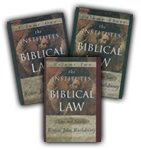






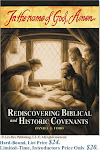



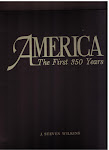
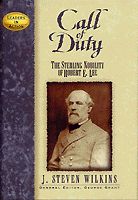
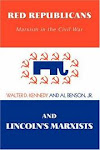



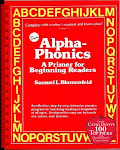
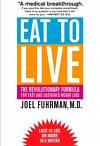



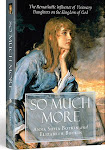























No comments:
Post a Comment